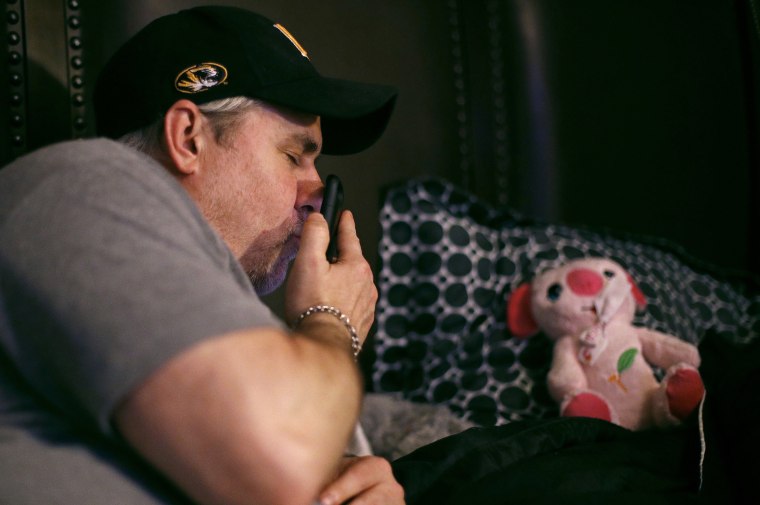
In Focus
Split between Mexico and Missouri: A deportation tears a family apart
As the U.S. takes a harder line on immigration, a woman was deported, leaving behind her American husband and daughter in Missouri.
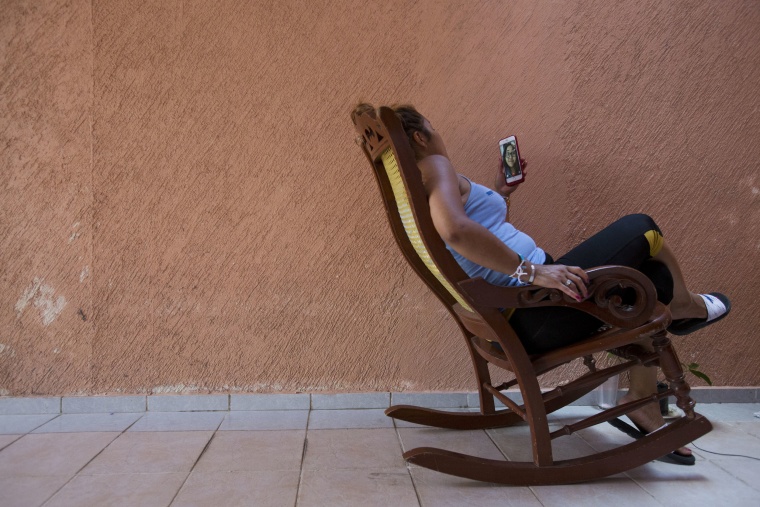
Letty Stegall speaks on a video call with her daughter Jennifer Tadeo-Uscanga, 17, from her parents' home in Boca Del Rio, Veracruz, Mexico.
Stegall, who lived in the United States for 20 years, was deported back to Mexico in March, leaving behind an American husband and daughter.
Her deportation means she could be banned from the U.S. for a decade. She prays paperwork seeking to validate her return through her marriage could wind through the system within two years, but there is no guarantee.
For now, she is a stranger in the vaguely familiar land she left as a 21-year-old in 1999, her phone and laptop the only windows to a life that's no longer hers.
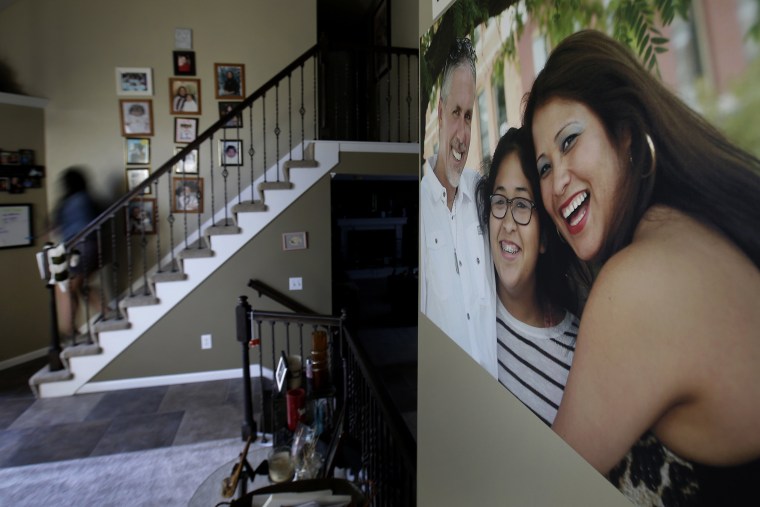
Hanging in the wall of her home in Kansas City is a photo of Stegall with her husband of six years, Steve, and Jennifer.
In Kansas City, her fear of being caught receded with each passing year. Donald Trump's tough rhetoric on illegal immigration piqued her attention and stirred a little worry, but he talked about catching rapists and murderers and gang members, and that wasn't her. She carried her Social Security card, obtained through her marriage, work permit and driver's license everywhere just in case.
She had just started backing out of the driveway to head to the gym on the morning of Feb. 26 when three cars careened in. Agents hopped out, opened her door and told her she was under arrest. She urged them to look at her paperwork and thought it was all a mistake.
"I'm married to an American citizen," she pleaded. "I have a citizen daughter."
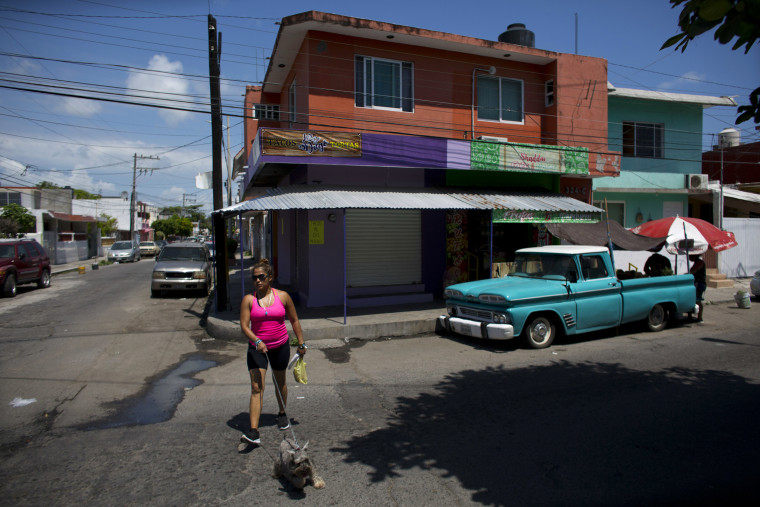
Stegall walks Max, her relatives' dog, near her parents' home in Boca Del Rio, Mexico.
Stegall grew up two hours from here in Cosamaloapan, a flat, crop-dotted part of Veracruz, the state that hugs a broad chunk of Mexico's eastern coast. Her parents' furniture business afforded a comfortable existence, but drawn by the stories of a cousin who settled in Overland Park, Kansas, Stegall was convinced there was greater opportunity for her in the U.S. She paid a smuggler $3,000 to lead her across the Rio Grande in 1999.
She was caught and returned to Mexico but crossed successfully a day later.
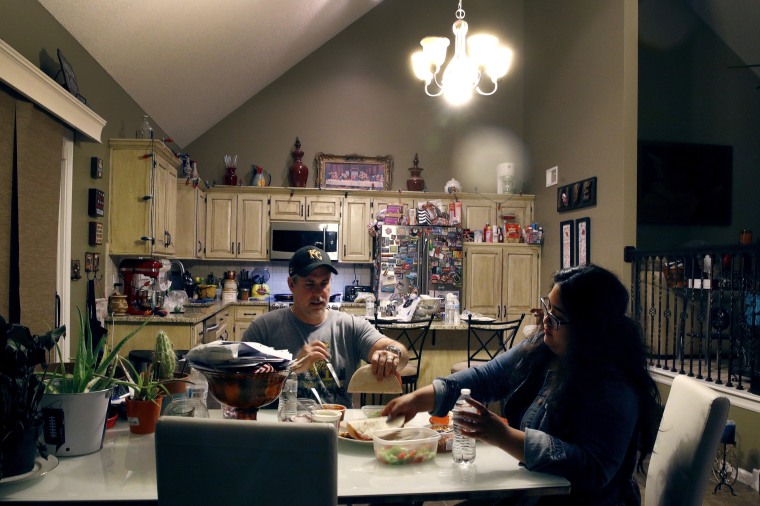
Dinnertime is not the same without Letty. "She's not dead," said Jennifer. "But she's not here."
While U.S. Immigration and Customs Enforcement often touts the criminal convictions of those rounded up, arrests of migrants with convictions for offenses such as driving under the influence (59,985 in fiscal year 2017) outnumber those of immigrants previously convicted for homicide, sexual assault or kidnapping. (Those collectively totaled 6,553 in 2017.) Meantime, arrests of immigrants without criminal convictions have increased significantly since Trump took office.
Officially, Stegall's deportation process began under President Barack Obama. He became known as the "deporter in chief" for presiding over so many removals but changed tactics in the final two years of his presidency, when ICE was directed to exercise discretion to defer action on certain migrants with standing removal orders, including those with citizen children and living in the U.S. prior to 2010.
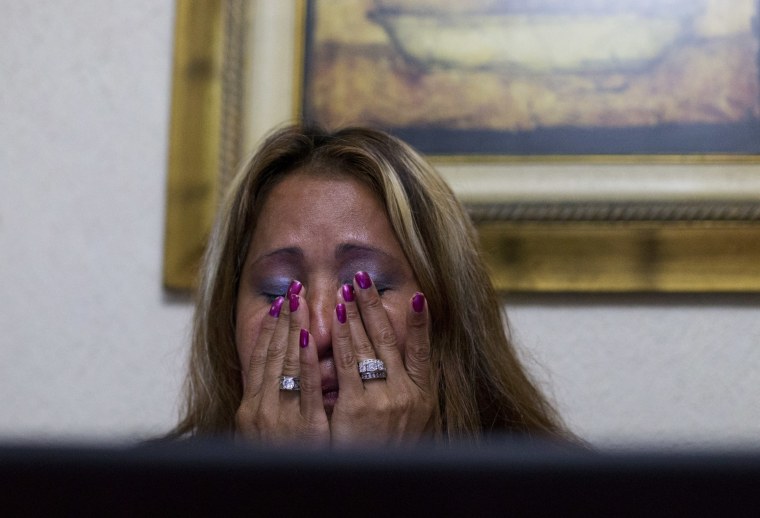
Six years earlier, police pulled Stegall over a few blocks from her house and charged her with misdemeanor drunken driving. The arrest made authorities aware that she was in the U.S. illegally. Stegall spent a month in jail and her case went into the immigration system.
Stegall cried at her computer after talking to her daughter. She sees that she is paying the price for her mistake but is also convinced that her deportation was unfair.
She wonders why the government's crackdown efforts seem to focus on her and other low-level criminals instead of the "bad hombres" that Trump said he'd banish. "They didn't take out the people who are dangerous," says Stegall, 41. "The murderers are still there. The gangsters are still there. The rapists are still there."
Stegall didn't apply for a green card after getting married because her former attorney told her she had little to worry about with a citizen husband and daughter and because, under U.S. law, she likely would have had to return to Mexico and wait out the process there.
Four days after her February arrest, Stegall won a stay of deportation in court pending a hearing. But ICE already had her shackled aboard a flight to Brownsville, Texas, where she was directed to cross by foot back into Mexico. Her family, relieved by the victory in court, didn't even know she was gone.

At The Blue Line, the Kansas City hockey bar Letty and Steve ran together, a flag-festooned box at the end of the bar is labeled "Letters for Letty."
"Life here is incomplete without you," reads one. "A couple tacos and a few drinks at happy hour isn't the same without your smile," says another. "You don't know me but I was sick when I heard your story," goes a third.
Many in the bar, including Steve's parents, gave their vote to Trump. They liked his promise to bring jobs back to the U.S. and the vow to make trade with China fairer. And they supported him when he said criminal immigrants would be deported. They just didn't see Stegall as falling into that category, even if she came to the country illegally.
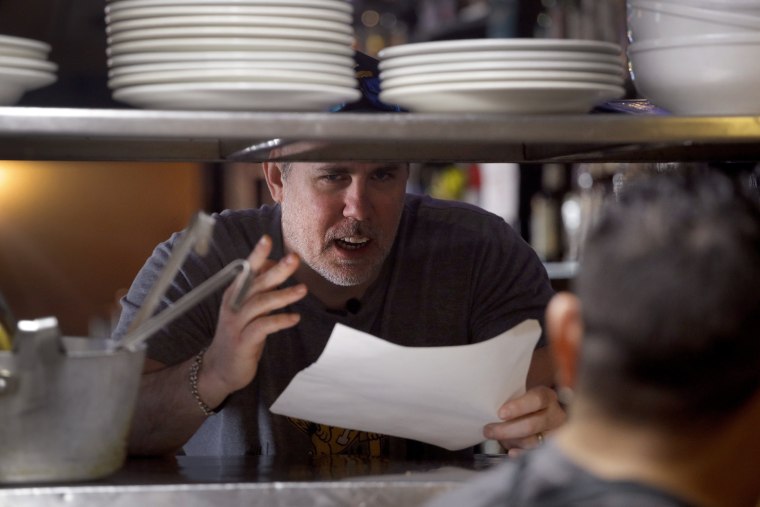
Steve Stegall talks to a cook at The Blue Line. He's taken on many of the duties once performed by Letty who was the general manager until her deportation.
When anyone balances compassion for his wife with support for Trump, he's confounded.
"He's destroying American lives," he said of the president. "How can you do this? How can you do this to your own American people?"

Letty speaks with Jennifer on a video call as she walks near the port in Veracruz.
The world she loved has been flattened and digitized. She recognizes how odd it all may seem, but she wonders what other choice she has. Should she pull Jennifer from the only country she's ever known, where her dreams of college and career seem so achievable? Should she ask Steve — born and bred in Kansas City — to abandon their business and home and come to a place where he can't speak the language and his safety might be jeopardized by drug cartels?
The questions hang in the thick summer air.
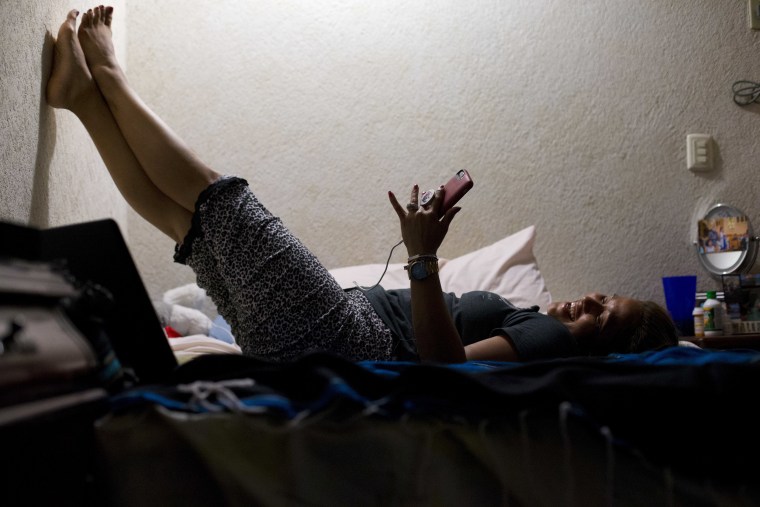
Letty and Steve trade texts about whether to watch Netflix together but apart, before deciding they're too tired for a show. They go through the banality of their days, joke about losing weight and recount his visit to a psychiatrist before holding their lips to the screen to say goodnight.
